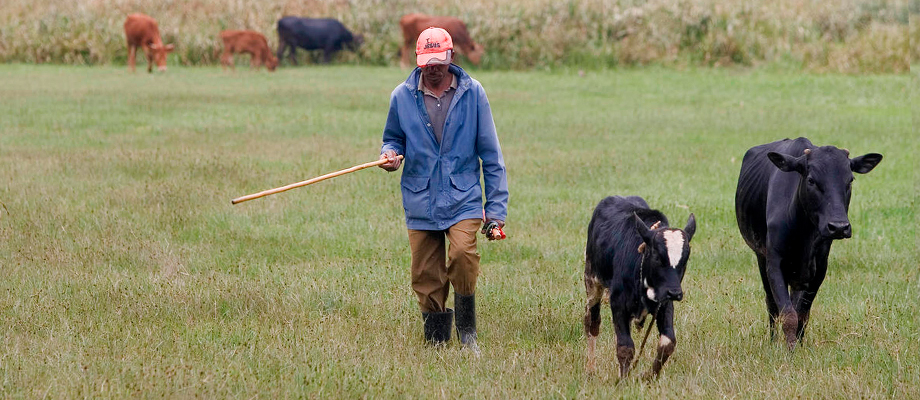Overcoming market failures in agrifood systems

How do you incentivize the private sector to create or scale up high-impact agricultural innovations that benefit smallholder farmers?
One way is through AgResults – a Pay-for-Results prize competition designed to crowd in private investment to address agrifood market failures.
The FAO Investment Centre recently hosted a workshop to learn more about the USD 150 million initiative, supported by the governments of Australia, Canada, the United Kingdom, the United States and the Bill & Melinda Gates Foundation and the World Bank, managed by a Secretariat. The event drew around over 40 participants, including colleagues from FAO’s Office of Climate Change, Biodiversity and Environment and Office of Innovation.
Christopher Brett, Lead Agribusiness Specialist with the World Bank Group, noted that the workshop offered an opportunity to share learning from AgResults – in its twelfth year – and to brainstorm with FAO on potential joint work.
“AgResults is about connecting the private sector to untapped smallholder markets, and encouraging agribusinesses, input suppliers, vaccine manufactures to develop innovative solutions that contribute to reducing food insecurity, improving household health and nutrition and increasing livestock productivity,” he said.
With the initiative running for another four years, Brett said that the World Bank “is committed to working with FAO in designing and implementing some new AgResults prize competitions” to drive forward ideas that will transform the market system, making it more sustainable and resilient.
Encouraging innovation
As opposed to traditional push funding, AgResults prizes serve as a pull mechanism, with payments made only if specific results are achieved.
The solutions and processes are agnostic. The private sector is given space to come up with their own solutions to existing and often neglected problems. And rewards are pegged to the desired results, not how the companies obtain those results.
In doing so, the competitions motivate the private sector to engage with new markets, identify and source new technologies, create partnerships and build relationships and trust with farmers.
Panellists shared results from different AgResults prize competitions, including a four-year USD 4.9 million project to increase dairy productivity in Tanzania.
The prevalence of low-yield dairy cattle breeds, poor management practices and seasonal fluctuations in forage and feed hamper the sector’s productivity.
Most of the country’s dairy farmers are smallholders, with many struggling to access affordable extension or veterinary services. High-quality inputs, like parasite control, nutritious feed, vaccines and artificial insemination are also lacking.
The competition was designed to encourage private sector input suppliers to deliver input bundles and advisory services to smallholder farmers.
Successful competitors receive prizes annually based on the value and complexity of the input bundles they sell to farmers – a move that allows those companies to reinvest in growing and expanding their businesses and services.
From 2019 to present, 389 000 input bundles from 30 participating companies were sold to 40 000 farmers. One unexpected outcome was the creation of a fodder market by smaller agro-input suppliers.
Sharing lessons
AgResults relies on robust verification to ensure that the competitions’ conditions are met, and evaluation to share lessons on what works, from pre-conditions for sustainable market impact and smallholder farmer impact to prize and project design considerations.
AgResults developed a toolkit providing practical guidance to development donors and practitioners on how to design their own Pay-for-Results prize competitions.
Nuno Santos, the Centre’s Deputy Director for Business Development and workshop moderator, spoke of FAO’s increasing focus on innovative finance, including work around blended finance and impact investing.
“We are trying to be more innovative in the design of agrifood investment strategies and projects, including introducing more digital solutions, but it’s not always easy to do,” he said. “I find the AgResults model refreshing, and it raises good ideas on how to engage in different ways with the private sector to tackle agrifood challenges.”
